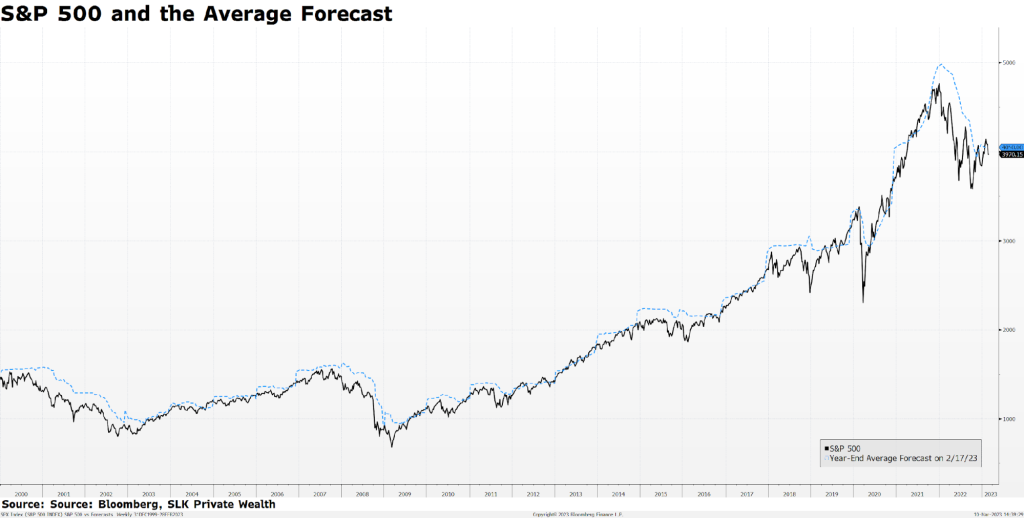“Those who have knowledge don’t predict. Those who predict don’t have knowledge.”
Lao Tzu (circa 6 th century B.C.)
“It’s tough to make predictions, especially about the future.”
Yogi Berra
Market forecasters are often viewed as experts in their field, offering what many believe to be indispensable insights into future market trends. However, the reality is far from this idealized perception.
How accurate are forecasters? Utilizing data compiled by Bloomberg, which tracks S&P 500 price forecasts from prominent Wall Street strategists, we conducted the following analysis. To gauge the accuracy of this cohort, we compared forecasters’ average projected return at the beginning of each year to the actual return of the S&P 500 for that year, dating back to 2000. The accuracy of forecasters has been dismal, with an average deviation of 15.6% between their projected return and the S&P 500’s actual return. A simple approach would have fared much better. From its inception in 1926 to 1999, the S&P 500 price index appreciated on average 6.3% per year. Had we used this historical average as our forecast for each year, our average deviation would have been 14.2%. Not great, but better than the “experts”.

What makes matters worse is forecasters are notoriously terrible at predicting downturns, crucial times when investors need them most. For example, heading into 2008 the average forecaster predicted the S&P 500 would return 7% for the year. What transpired was the worst economic recession since the Great Depression, with the S&P 500 ending the year down 38%. That’s a 45% miss on a pivotal year! We saw this happen again in 2022, with the average forecaster predicting a 4% return on a year when the S&P 500 declined 19%.
The limited predictive power of forecasters is illustrated in the chart below. If forecasters had any foresight, the black line, representing the S&P 500, would trail the blue line, representing forecaster predictions. Instead, the blue line hovers just above the black line, indicating forecasters are simply applying a slight premium to what has already occurred, rather than providing genuine insight.

Why does anyone listen to forecasters? The unfortunate reality is the audience doesn’t hold them accountable. Forecasters know the name of the game is to sound smart, and if you’re right, tell everyone how right you were, and if you’re wrong, sweep it under the rug. Throughout history, if there is a demand for something, there sure will be someone to supply it, even if what’s being demanded isn’t attainable. As such, professional forecasters are much like fortune tellers. They may be good for entertainment, but not much else.


